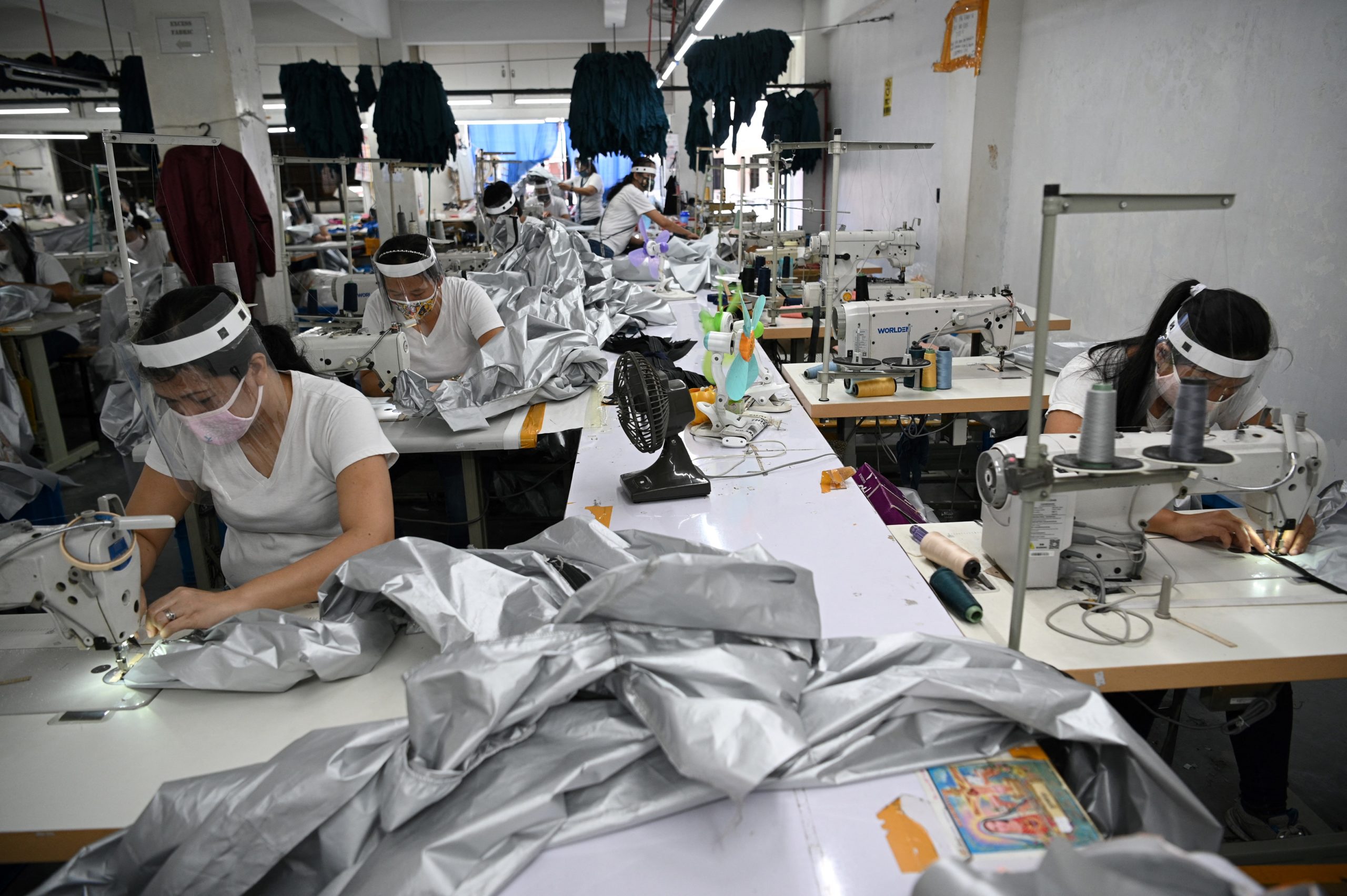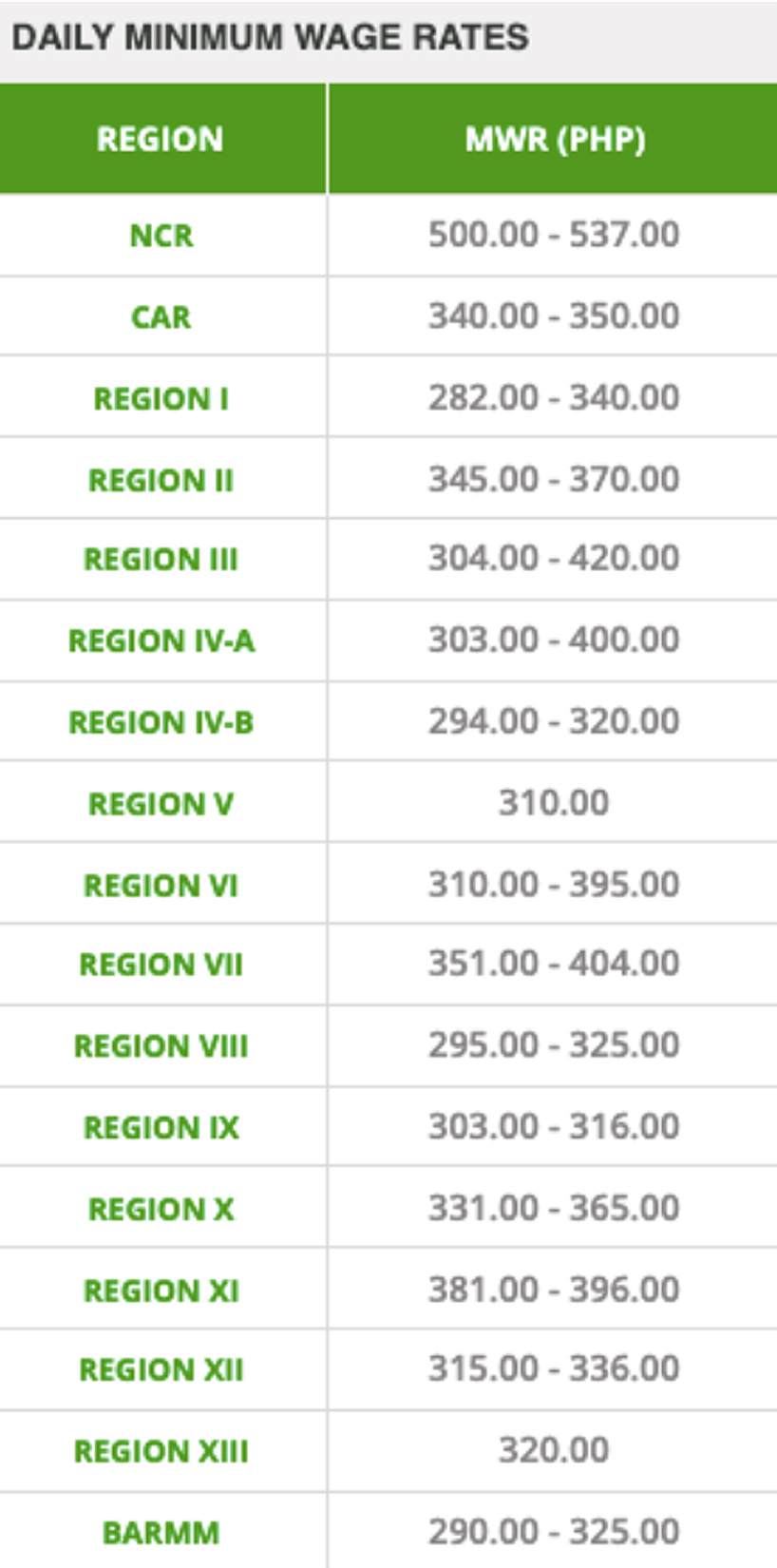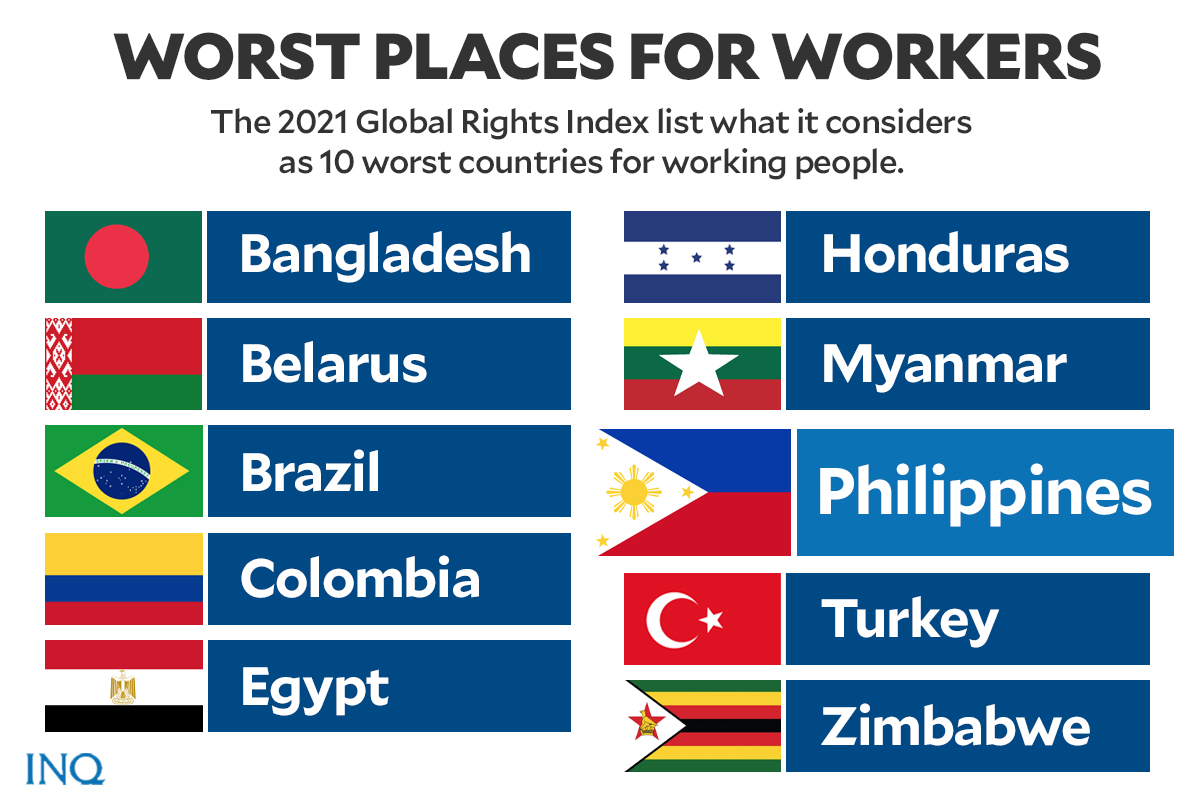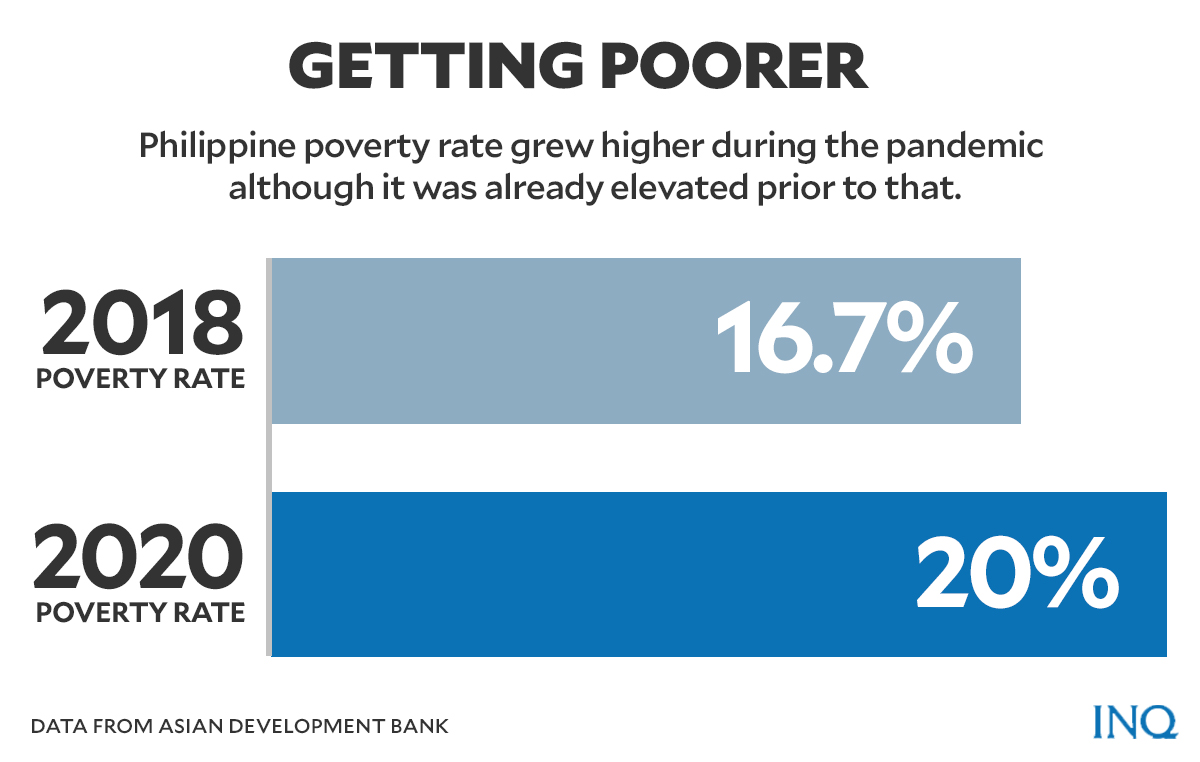Isabelo de los Reyes: Labor rights trailblazer still relevant 83 years after his death

Workers wear protective equipment in a factory in Taytay town. The group Defend Jobs Philippines said lack of protection against COVID is among the key complaints of many union leaders. FILE PHOTO/AFP
MANILA, Philippines — Not many people are likely to know who Isabelo de los Reyes is but his work continues to be relevant 83 years since his death.
De los Reyes is considered to be the father of trade unionism in the Philippines, whose work laid the foundation for the Filipino worker’s struggle for better conditions, fair pay and rights recognition.
According to the group Defend Jobs Philippines, De los Reyes’ story is the story of the continuing fight to uplift Filipino workers.
“His lessons of educating, organizing and driving our workers to collective action toward a common goal, remain to be a vital formula in order for Filipino workers to advance and bring forth victories through their current crisis and challenges,” Defend Jobs said on the occasion of De los Reyes’ 157th birthday.
Born in Vigan, Ilocos Sur in 1864, De los Reyes established the Union Obrera Democratica Filipina in 1902—the first labor federation in the Philippines.
He initiated the first Labor Day celebration in the Philippines and also published the country’s first trade newspaper, La Redencion del Obrero (The Redemption of the Worker).
De los Reyes, according to Defend Jobs, “sparked unity and collective action” among Filipino workers through labor unions and education.
Life of ‘Don Belong’
De los Reyes, also known as “Don Belong,” was the son of Elias de los Reyes and Leona Florentino, a poet. As a boy, he went to a seminary in Vigan where he personally witnessed friar abuses.
He is also known as a revolutionary who fought Spain by writing about the friars, which got him into trouble with the Spaniards. He was accused of complicity in the 1896 revolution against Spain and detained at the now New Bilibid Prison in February 1897.
In prison, De los Reyes wrote Sensecional Memoria (Sensational Memory) saying “friars were the ones who sowed the seeds of rebellion against the colonial government in the Philippines.”
The National Historical Commission in the Philippines (NHCP) said the document had caused his extradition to Spain. Through the Pact of Biak na Bato in December 1897, he was released and was appointed member of the Cabinet in the colonial government.
He had other roles during the Spanish colonization period and became a vocal critic of American colonialism in the Philippines.
But workers’ groups best remember him for his trade union efforts.
He died on Oct. 10, 1938 and his trade unionism work lingers on.
State of workers
Defend Jobs said De los Reyes’ dedication showed in labor dispute mediation and various union-organizing efforts and these remained significant today.
More than 80 years after De los Reyes’ death, his cause continues to be the battle cry of workers against massive unemployment, low pay, unsafe workplaces and attacks on workers’ rights.
Defend Jobs said at no other time was De los Reyes’ cause more relevant since “majority of our labor force faces the worst impacts of this current health and economic crisis.”
In an interview, the Bureau of Labor Relations of the Department of Labor and Employment (BLR-DOLE) cited discussions with labor unions about their main concerns. These were illegal suspension or dismissal, irregular shifts, red-tagging, lack of protection against COVID-19 and lack of benefits from Social Security System for those who had been infected.
In 2018, the country’s poverty rate was 16.7 percent, but as the COVID-19 crisis ravaged the economy, the Asian Development Bank said that the poverty incidence in the Philippines in 2020 was 20 percent and “will remain elevated” in 2021.
The National Economic and Development Authority said that it sees unemployment staying elevated and more people still living below the poverty line until 2022.
According to a report from the International Labor Organization (ILO) in December 2020, around 10.9 million Filipino workers lost their jobs and had lower incomes and shorter working hours because of the effects of the pandemic on the economy. It also said that 7.2 million of the 10.9 million vulnerable Filipino workers may be “displaced” as the country shifts toward online work.
According to a list from the National Wages and Productivity Commission-DOLE, the minimum wage in Metro Manila is P500 to P537 per day.

SOURCE: National Wages and Productivity Commission-DOLE
In a survey last December, the Social Weather Stations (SWS) said that 48 percent of Filipino families considered themselves poor.
The SWS said that a family considers itself poor if its monthly budget for home needs falls below the following threshold: P15,000 for Metro Manila and Visayas and P10,000 for Balance Luzon and Mindanao.
In a 2021 list from the International Trade Union Confederation, the Philippines was included as one of the worst countries for workers where the pandemic had been used to justify layoffs and outright dismissals. The countries on the list were also those where there had been routine violations of bargaining rights, right to privacy, right to free speech and assembly.

Graphic by Ed Lustan
The 2021 Global Rights Index said that the 10 worst countries for working people in 2021 were Bangladesh, Belarus, Brazil, Colombia, Egypt, Honduras, Myanmar, Philippines, Turkey and Zimbabwe. It also said that “trade unionists were murdered in six countries, including the Philippines.”
Defend Jobs said under the Duterte administration, “numerous trade union repressions and attacks have been recorded nationwide.”
Data from the human rights group Karapatan said of 376 victims of killings since President Rodrigo Duterte took office, 16 were workers.
Unionism lives
Decades have passed since De los Reyes established the first trade federation in the Philippines, but for Filipino workers, the legacy he left was a solid foundation on which to continue the fight for better working conditions.
“Amid the COVID-19 pandemic, De Los Reyes will forever be the Filipino workers’ inspiration,” said Defend Jobs.
For the BLR-DOLE, unions play an essential role.
“Because of the bargaining power of the union, workers can have higher wages and additional benefits,” said the agency.
“The union is also the one fighting against discrimination of workers and for them to have a safe workplace,” the agency added.
One of the most basic forms of protection for workers is the collective bargaining agreement (CBA).
It is defined as the “contractual agreement between an employer and a labor union that governs wages, hours and working conditions for employees and which can be enforced on both the employer and the union.”
In its December 2019 data, the agency said a total of 939 CBAs are in effect covering 203,229 workers.
The Labor Code of the Philippines gave the DOLE the function of registering labor unions for these “to acquire legal personality and to enjoy the rights given to legitimate labor organizations.”
The LBR-DOLE said unions help in protecting the rights of workers against abuses. It said that workers have rights to organize, initiate bargaining agreements, security of tenure, and demand just and humane conditions.
In 2021, there were at least 102,885 labor organizations in the Philippines with a combined membership of 4.8 million.
Of the total registered labor unions, 81 percent are workers’ associations covering about 2,7 million members. Private sector unions cover 17 percent with more than 1.6 million members, while there are public sector unions covering 2 percent of the total registration.
The BLR-DOLE said that it is important that unions exist to protect workers without whom “production that generates income will not be realized.”
“The solid union of workers is never a hindrance to progress because it helps the company to develop,” said the agency.
“Sharing the so-called ‘fruit of labor’ is not bad because it is a right. It shows distribution of wealth not only for some, but for most people who, at the end, are helping the economy to progress,” it said.
And for these, Filipino workers have De los Reyes to thank for.

